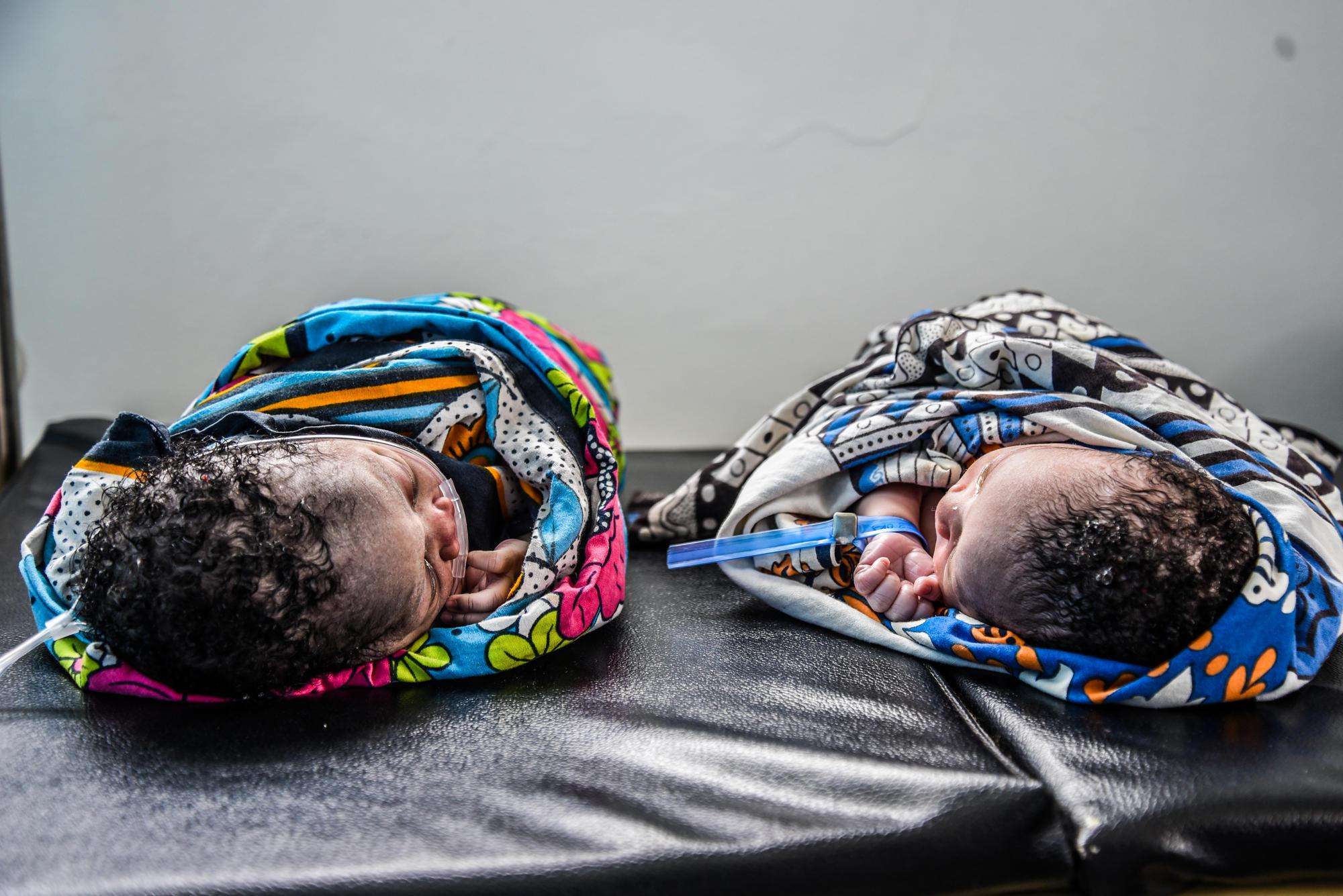A woman screams. Muffled sounds of encouragement from a midwife can be heard through the white door labeled "Delivery Room." It's not long before a baby's sharp cry follows from the room in the temporary health center run by Doctors Without Borders/Médecins Sans Frontières (MSF) in Likoni, southwest of Mombasa Island. This temporary center is different from most; it's part of an innovative facility called "Container Village," constructed from shipping containers bound together to make a fully functional hospital.
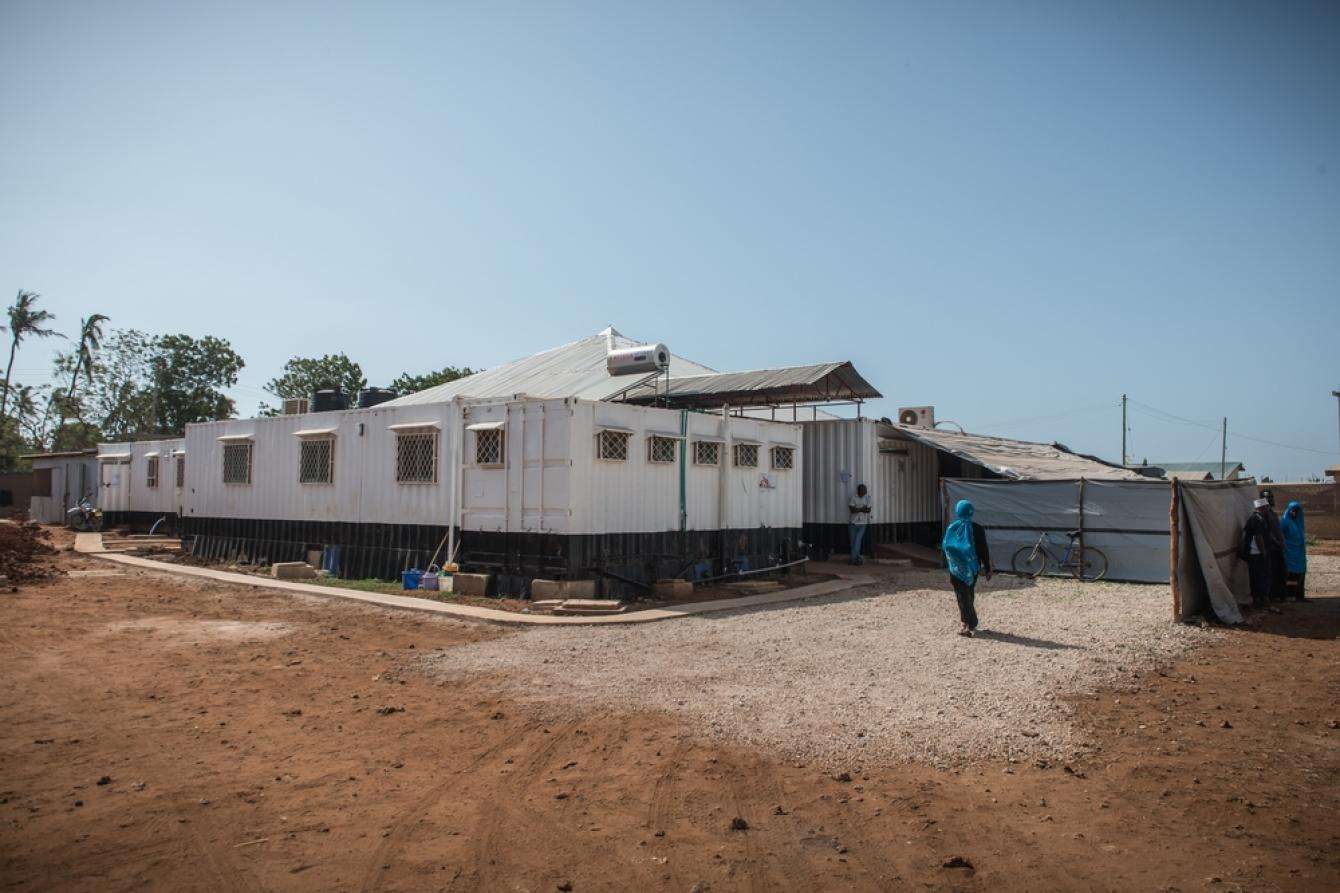
The waiting area in Container Village is just outside the delivery room. The room is a hive of activity. Expectant mothers are seated on a bench waiting for their consultations as more walk in. Others are leaving the labor wards to walk around a little. Nurses and midwives move from one room to another. The ceiling is high, and the space is bright thanks to skylights in the roof.
Shamir Rama, 19, has just delivered her first child. She was brought in by her parents. "I didn’t know where I would give birth, since many government hospitals are not working. I'm glad I was admitted here," she said. It's July 2017, and a countrywide nurses' strike in Kenya has entered its second month. More than 1,000 mothers have given birth in the shipping container facility that month—a new record. On the day Shamir delivered her baby, more than 35 others were born there.

Before MSF started its medical activities in this region in January 2016, there were no emergency obstetric or neonatal care facilities in the highly populated sub-county of Likoni. Expectant mothers had to take a ferry across the channel to reach the maternal services on Mombasa Island, which increased the risk of delivery complications. In an emergency, the time taken to make the crossing could prove life-threatening for mothers and babies alike. Worldwide, some 830 women die from preventable causes related to pregnancy and childbirth every day—the vast majority in low-resource settings, according to the World Health Organization.
That’s why MSF decided to rehabilitate and expand the old Mrima health center in Likoni. However, to ensure access to medical services until the new center was functional, MSF had to do one of the things it does best: come up with innovative ways to care for people. Container Village, as it came to be known, became a haven where many mothers could safely deliver their babies, even with complicated pregnancies. The facility—which had 30 beds, a delivery room, a blood bank, and an operating theater for obstetric emergencies—offered sexual and reproductive health services, including Caesarean sections.
Earlier this year, MSF opened a permanent hospital in Likoni. Although Container Village is now empty, everyone involved remains proud of the role it played in helping many expectant mothers. Over the course of two years and four months, medics assisted 11,578 deliveries in this unique shipping-container facility.
Initially, MSF assisted around 300 deliveries a month. But when a 100-day doctors’ strike was followed by a countrywide nurses’ strike starting in June 2017, many people in Kenya were left without access to medical care. Container Village struggled to cope with the huge increase in patient numbers. In 2017, MSF teams assisted 7,873 deliveries in the health center, including 1,656 by Caesarean section. This was more than five times the number of the previous year.
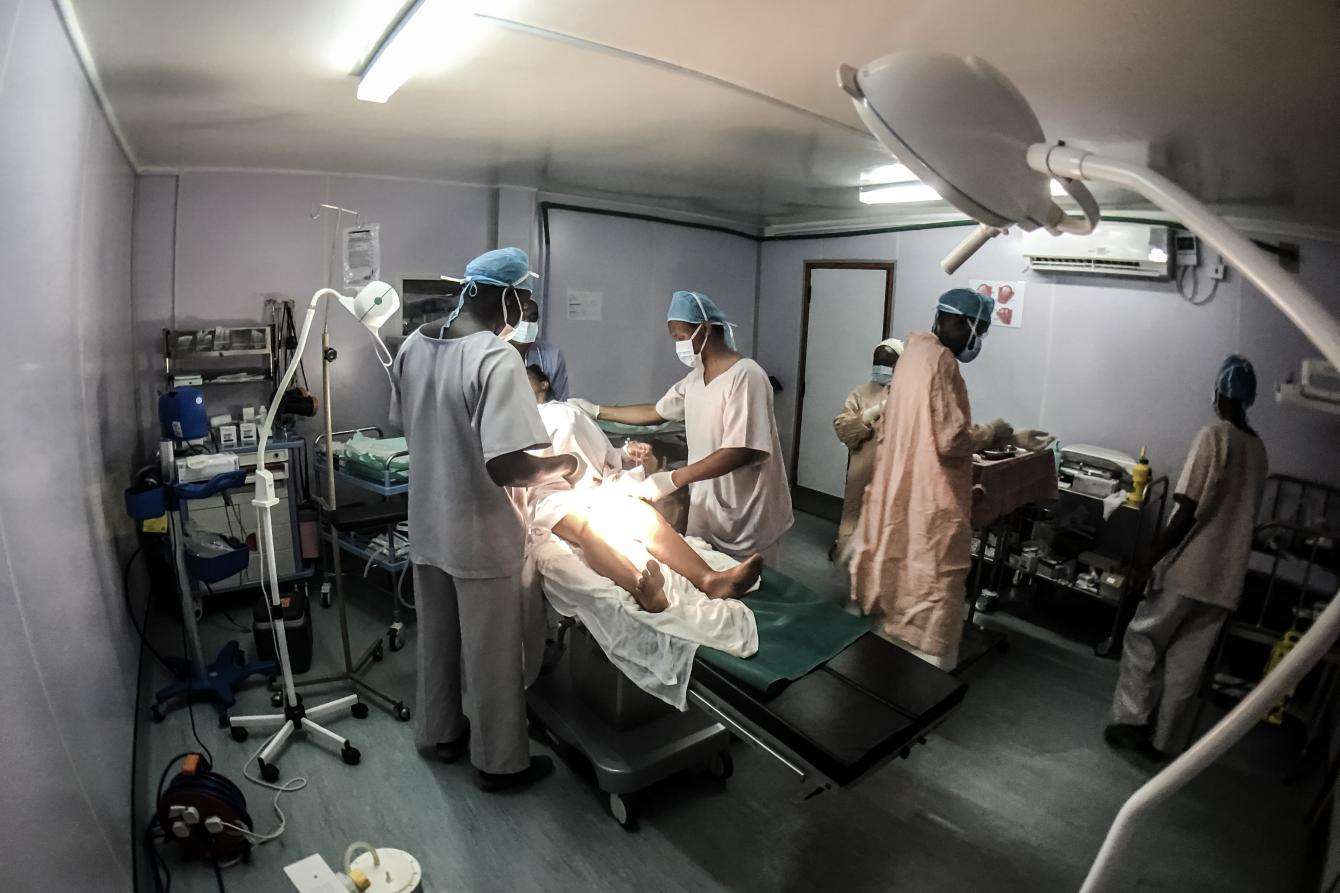
During the public health workers’ strikes, pregnant women came to Container Village not only from Likoni, but also from other areas of the coastal region. “We had several patients who arrived at our clinic on the verge of death, having come from far away. Fortunately, we were able to help all of them in time,” said Carol Mugun, MSF’s maternity supervisor in Likoni at the time.
Twenty-nine-year-old Fatuma* was brought in on a Friday night, having been referred with complications from a clinic in Msambweni, a two-hour journey away. Three days after being admitted, her memory of what had happened was unclear. “She was in shock, breathless, and had lost a lot of blood when she was referred here,” Carol said. Sadly, she lost her child.
Despite the pain of losing a child and not being able to conceive again, Fatuma and her husband were both relieved. “I am just thankful to be alive, to be able to take care of my other children,” Fatuma said. She had three other children, the eldest was just nine years old. “I had never heard of this hospital until that day,” said her husband Salum*, about MSF’s Container Village, “but I am forever grateful to the doctors. I will never forget this place.”
"I am forever grateful to the doctors. I will never forget this place."
Salum
Many people, including the medics, had never been to a hospital made out of shipping containers before. To most, the place looked rather odd from the outside. “Initially we thought it was going to be too hot and uninhabitable, but fortunately that wasn’t the case,” Carol said. “This was my first time working in a hospital made of containers, but it has been enjoyable. I have many fond memories, as do many of the patients.”
“I was referred here from Likoni sub-county hospital,” recalled one woman who delivered in Container Village. “When I entered the facility I was quite surprised, as I hadn’t expected it to look like this on the inside. It was well-equipped and clean, and the doctors and nurses were nice and professional.”
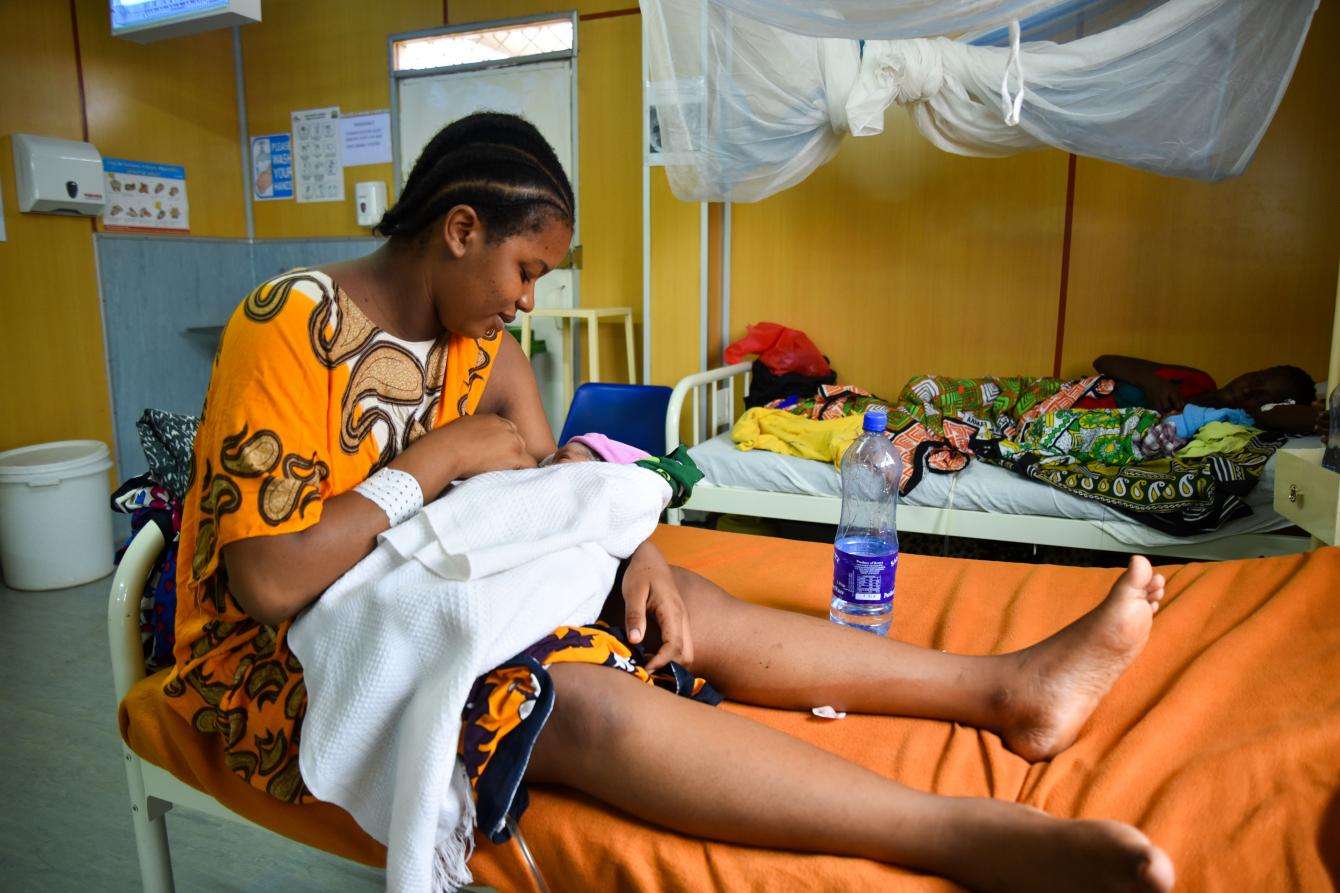
In May 2018, after two years of rehabilitation work on the old Mrima health center in Likoni, MSF officially opened a new, expanded facility. “This 31-bed health center includes professionally designed consultation rooms, with plenty of space and improved medical fittings to cater for a higher number of patients and provide a better environment for mothers to deliver in,” said Stephanie Giandonato, MSF’s head of mission in Kenya. “This is part of MSF’s commitment to providing quality health care and emergency medical services, ensuring that mothers can access professional emergency obstetric care and maternity services close to where they live.”
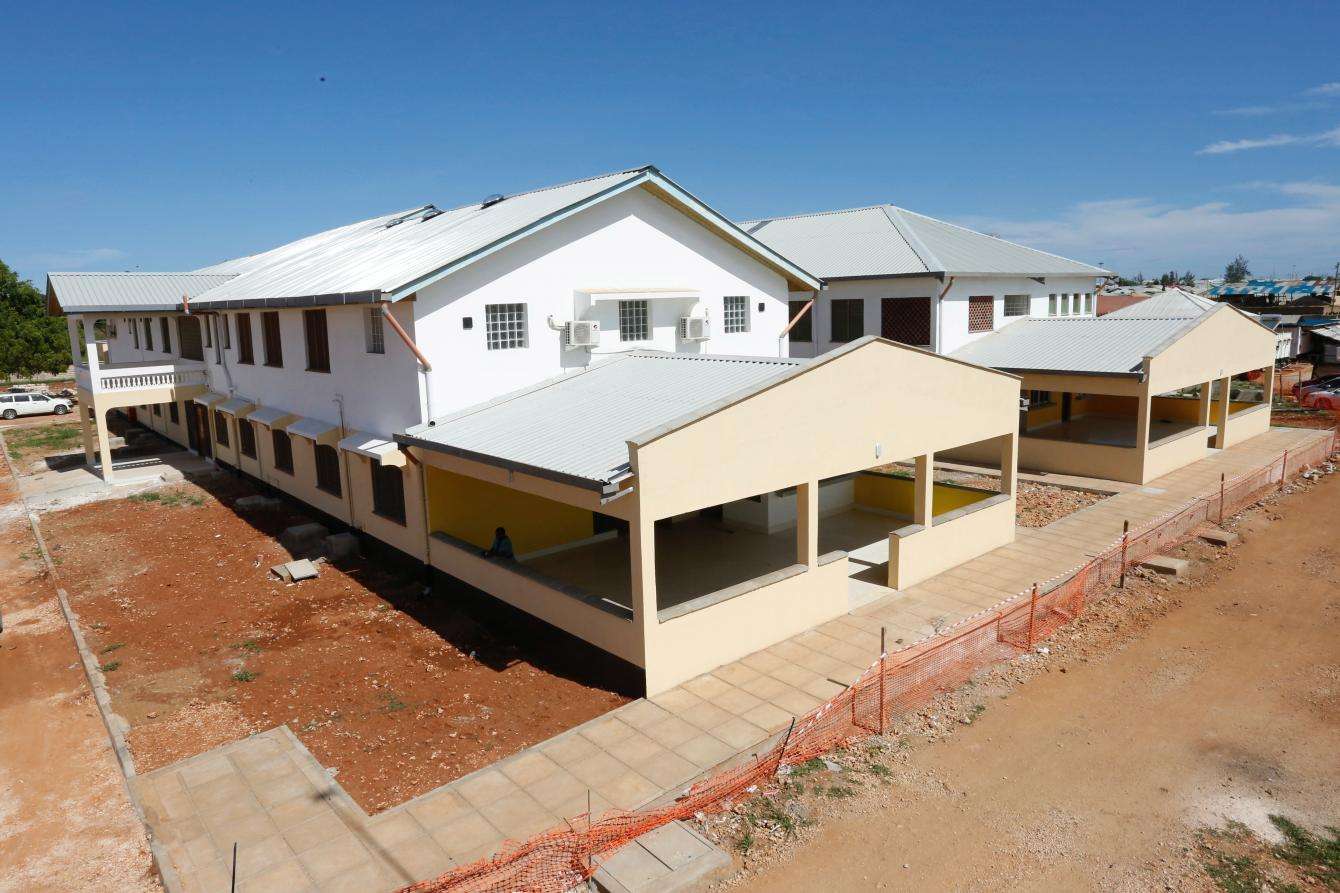
*Names changed to protect patient privacy
